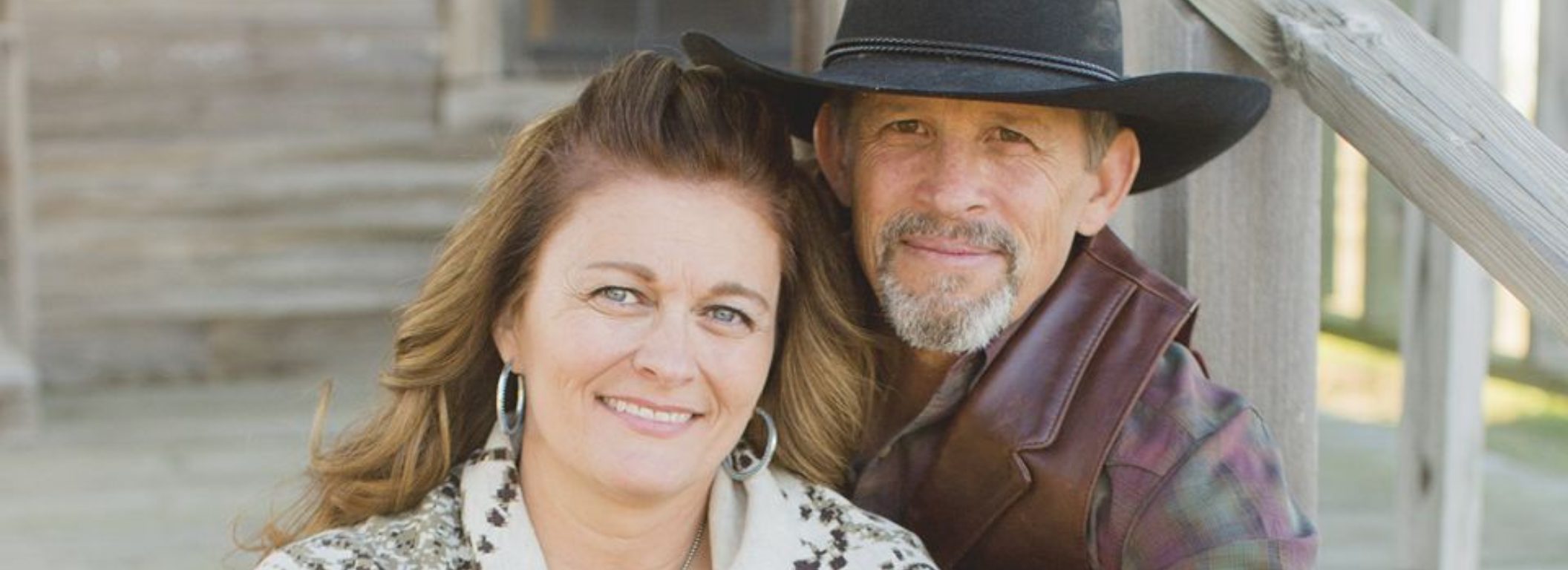
Into the Lonely Places
By Kristel Zelaya | Church Mobilization
“Our hearts belong to any place where there are more livestock and tractors on the roads than cars or trucks,” say U.S. missionary Ken Pryor and his wife, Tammy. “That is who we are — country through and through. We love helping build healthy churches in rural places by loving, encouraging and supporting rural pastors and their families through church building and restoration projects and community outreaches.”
The Pryors, who are appointed to serve with Church Mobilization, share that dwellers of rural areas are hard workers, many having been farmers and ranchers for generations.
“It is their lifestyle, not their job,” Ken says. “These are very tight-knit communities that you don’t just move to and become part of overnight. There are cultural differences in every small town, yet family and community are consistently at the top of the list. Everyone pulls together to help each other. Rural places are the backbone of the United States and one of the biggest mission fields we have.”
FAITHFULNESS IN LONELINESS
Ken and Tammy share that pastors or missionaries coming into these close-knit places can often be reminded that they are not from the community of their calling. However, as they faithfully love people, adapt to local culture, and prove themselves trustworthy, they will be accepted as family and can freely share the love of God, the Pryors say. The presence and power of God working in these communities drastically increases the quality of life.
Ken thinks of Sid and Sarah White, who faithfully help lead an Assemblies of God church in Glen Ullin, North Dakota, while Sid also works for the county and Sarah runs a coffee shop.
Aaron and Cheryn Archer also come to his mind. They serve the community of Bogata, Texas, in many ways while simultaneously leading their church from near closure to a vital, healthy part of the community in just six months.
Ken also names Brent and Cassandra Schmidt, who have pastored in Hungry Horse, Montana, for 18 years. Less than 700 people populate this town, laying at the entrance of Glacier National Park.
When the Schmidts arrived there, the church had a basement door access that was inaccessible and barricaded with dirt. A tree had even started to grow out of its collapsed stairway. This hole became symbolic to Pastor Brent, both of the need in the United States’ rural places, and also of how isolated he and his wife felt at times.
Eventually, Ken and Tammy heard that Pastor Brent and the church could use someone to come alongside them. After an exploratory visit, they discovered the building did indeed need a good deal of attention — particularly the old basement entrance. The following year the Pryors recruited and led a team to Hungry Horse, rehabilitating the church facility and building a beautiful block stairway for the basement.
Upon completion of the project, Pastor Brent stood by the stairs, deeply moved as he realized he was not alone — there were people standing by to help in his ministry.
Ken says, “My favorite victories are won alongside these rural pastors and families that we have loved and helped realize they are not alone and that they are exactly where God wants them.”
In addition to the rural mission field, Ken and Tammy serve another very special sector who desperately need to be told of Jesus’ love and help.
LONESOME DOVE
Outside of Royse City, Texas, is the 120-acre Lonesome Dove Ranch — a place of healing for abused and traumatized foster children. Children visiting Lonesome Dove get to experience threefold Round-Up camps intended to build positive relationships, help mend broken hearts, and introduce children to Christ.
Ken shares that the children who come are specially chosen because of the trauma they have been through and need for special attention to the point that other camps will not accept them. Lonesome Dove camp counselors work one-on-one with each child, spending 23 of every 24 hours with their assigned child.
Ken and Tammy are based on the ranch. They oversee operations, and lead a cow/calf operation. Ken also trains all the ranch’s horses, who play a special role in helping those struggling with trauma.
“It’s amazing to see what a few minutes with a horse can do in these children’s countenances,” he says. “Children that haven’t spoken in days start talking to us as we walk them around the arena on horseback. But the greatest thing that happens is on the last day of the camp.”
Children are taken with their counselors on a hayride with four significant stopping points, including a stop to meet a horse called Hope. Prior to being adopted by Lonesome Dove Ranch, Hope was rescued from an abusive situation. Many children connect with Hope’s life story in a special way.
The final stop on the ride is a large cedar cross standing near the ranch’s lake. There the camp pastor explains to kids that Jesus can and will heal their hearts and pains. Each child is given a white rock and pen. They sit with their counselor and discuss and pray over what they want to write on the rock and leave at the foot of the cross.
Ken concludes, “Since being at Lonesome Dove Ranch and doing camps, we have seen hundreds of foster children's lives be dramatically impacted. There is a large pile of those rocks at the bottom of the cross that are prayed for daily. God knows their names and is continuing to restore each child.”
WHOM GOD CALLS HE QUALIFIES
Over a span of about 20 years, prior to their service at Lonesome Dove and throughout rural communities, the Lord adeptly moved Ken and Tammy through a path that began with a faint sense of calling to preach; to great emotion upon hearing missionaries speak; to brick-laying; carpentry and masonry; to short-term missions trips; to ranching and horse training in Wyoming.
In Wyoming, Ken enjoyed the fulfillment of his childhood dream of being a cowboy. “People should understand that God fulfills our hearts’ desires along the way,” he says. For eight years, Ken and Tammy ranched in Wyoming, learning how to become part of people’s lives in a new place and culture.
They then returned to Texas and masonry, punctuated by short-term missions trips. This comfortable life was curtailed, however, when — strangely — Ken’s work dried up.
He remembers, “I said, ‘God, OK. You have my attention. What do You want?’ I felt Him say, ‘I never said I wanted you part time in missions.’”
Ken and Tammy immediately responded to God’s call to full-time missions service, serving for seven years with AG World Missions, largely in construction ministry in Africa. The Pryors then returned to the United States to itinerate at which time the Lord redirected them to become U.S. missionaries.
“When you open the manual for the AG missionary requirements the first page says, ‘Ken Pryor does not qualify,’” he quips.
Ken had no ministerial credentials and to this day has never served as a pastor. Yet he bears witness to the fact that whom God calls, He also qualifies. And their diverse life and ministry experience renders Ken and Tammy especially able to compassionately walk with those from varied and complex backgrounds, from hurting children to rural pastors.
“Many living in the U.S. do not understand how many children are really in the foster care system or the horrid things many of them have gone through or are going through,” Ken says. “Similarly, many may not realize that more people live in rural America than anywhere else and that they are one of our own unreached people groups.”
Ken and Tammy rejoice as they see the Holy Spirit working in the hearts of the people they share and work with, helping them see these huge and very important mission fields that have “in many ways, been left behind.” They are grateful for the churches and individuals who stand alongside them as they stand alongside the lonely, hurting and forgotten in isolated places.
“We dream of and pray for the expansion of Lonesome Dove Ranch, including onto a mountain property,” the Pryors conclude. “We pray for the calling and training of young pastors to take up the rural lifestyle for a lifetime and become impactors of these places. And we pray for the building of a team who will assist us in reaching, helping and loving as many of these people and communities as possible, even when we ourselves cannot go.”
 ASSEMBLIES OF GOD
ASSEMBLIES OF GOD





